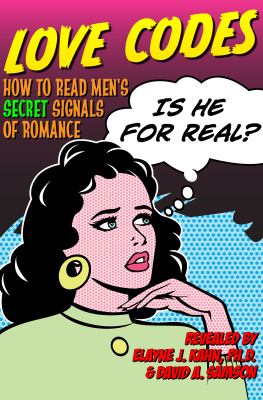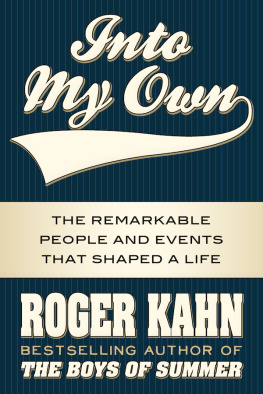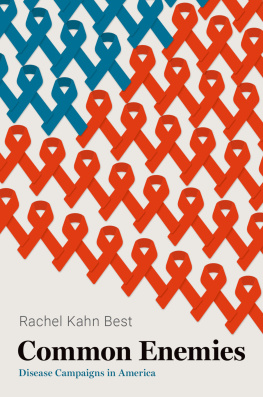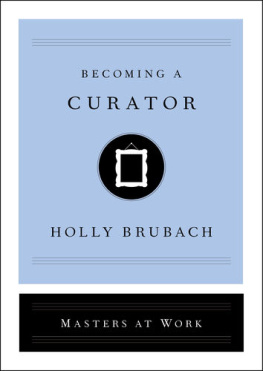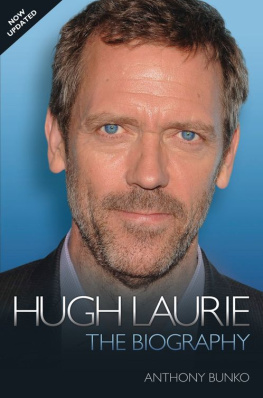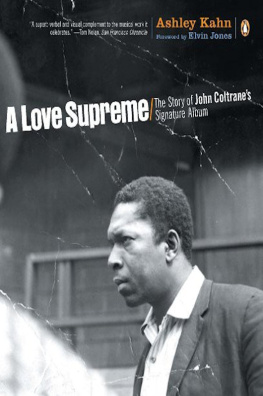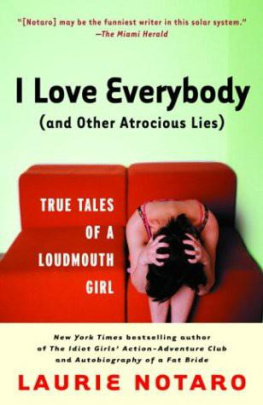Laurie Kahn - Baffled by Love
Here you can read online Laurie Kahn - Baffled by Love full text of the book (entire story) in english for free. Download pdf and epub, get meaning, cover and reviews about this ebook. year: 2017, publisher: She Writes Press, genre: Science fiction. Description of the work, (preface) as well as reviews are available. Best literature library LitArk.com created for fans of good reading and offers a wide selection of genres:
Romance novel
Science fiction
Adventure
Detective
Science
History
Home and family
Prose
Art
Politics
Computer
Non-fiction
Religion
Business
Children
Humor
Choose a favorite category and find really read worthwhile books. Enjoy immersion in the world of imagination, feel the emotions of the characters or learn something new for yourself, make an fascinating discovery.

- Book:Baffled by Love
- Author:
- Publisher:She Writes Press
- Genre:
- Year:2017
- Rating:4 / 5
- Favourites:Add to favourites
- Your mark:
- 80
- 1
- 2
- 3
- 4
- 5
Baffled by Love: summary, description and annotation
We offer to read an annotation, description, summary or preface (depends on what the author of the book "Baffled by Love" wrote himself). If you haven't found the necessary information about the book — write in the comments, we will try to find it.
Baffled by Love — read online for free the complete book (whole text) full work
Below is the text of the book, divided by pages. System saving the place of the last page read, allows you to conveniently read the book "Baffled by Love" online for free, without having to search again every time where you left off. Put a bookmark, and you can go to the page where you finished reading at any time.
Font size:
Interval:
Bookmark:

Copyright 2017 by Laurie Kahn
All rights reserved. No part of this publication may be reproduced, distributed, or transmitted in any form or by any means, including photocopying, recording, digital scanning, or other electronic or mechanical methods, without the prior written permission of the publisher, except in the case of brief quotations embodied in critical reviews and certain other noncommercial uses permitted by copyright law. For permission requests, please address She Writes Press.
Published 2017
Printed in the United States of America
Print ISBN: 978-1-63152-226-0
E-ISBN: 978-1-63152-227-7
Library of Congress Control Number: 2016963209
For information, address:
She Writes Press
1563 Solano Ave #546
Berkeley, CA 94707
Cover design Julie Metz, Ltd./metzdesign.com
Interior design by Tabitha Lahr
She Writes Press is a division of SparkPoint Studio, LLC.
Names and identifying characteristics have been changed to protect the privacy of certain individuals.
To Natalie Haimowitz, PhD, who taught me about love.
M artha points to the potted ivy plant with brittle leaves drooping on my window ledge. For Gods sake, Laurie, she says. What kind of therapist has plants that are half dead? Youre going to scare your clients off. You really should water them.
Martha is tall. Her hair is tucked under a Yankees baseball cap; although she now lives in the Midwest, we both understand that, in her heart, she is a New Yorker. Marthas edginess and honesty are part of the intimacy we have developed. She is a truth-teller. There have been times that others (her family and strangers on the street) have wished she was softer and less confrontational.
I have told Martha, You cannot get out of your car at stop signs and yell motherfucker at the annoying driver in front of you, behind you, or next to you. The drivers may be crazy or dangerous. They can hurt you. On other occasions, I have said, Martha, it is a bad idea to rage at your husband, and an even worse idea to do it in front of your children.
I have learned over many years that Marthas combative behavior and brutal honesty cover depths of grief and pain from too many losses suffered too young, from too much heartbreak with too little comfort.
In ten years of therapy, Martha has come far. She has learned to trust me and allows me to be her companion in dark places. She has shared with me the pain she suffered when she was twelve years old and her beloved adoptive mother died, leaving her in the neglectful custody of her father and stepmother. She has wept and faced the piercing grief of her brothers suicide with me, and spoken of the horror of being raped by her babysitter in her bedroom while her father and stepmother, steeped in alcohol, remained oblivious downstairs.
Martha is fierce, courageous, and resilient. I saw her rally after she found her birth parents and met the four sisters they chose to raise. After years of hiding in her bedroom, high on drugs and ashamed, Martha has gotten sober and made amends to her own children for the pain she caused them while she was abusing drugs. She no longerwell, less frequentlyyells obscenities at her husband, and she never yells at him in front of the children.
Today, as our session comes to an end, Martha gets up and saunters toward the door of my office. She rests her hand on the doorknob, turns back to look at me, and says, I love you.
I smile warmlybut behind my warm smile, I am in a mild panic. I think to myself, Caring? Sure. Compassion? Definitely. Fondness? Absolutely. But love? Is that going too far? Wouldnt that push the limits of the sacred client-therapist relationship, with its clear, well-defined boundaries?
I worry that I could be walking into dangerous terrain, the dreaded emotional quicksand that can derail even the best therapy. Tragic stories of therapists sexually exploiting their clients haunt us and fill the annals of our profession. We are trained to respect boundaries, to convey respect and provide consistency and predictabilitythese, we are told, are the foundations of good therapy. I sit in the black chair with the padded arms, and my clients sit in either the purple tweed chair or the tan cloth chair for their fifty-minute sessions. Its all very orderly and predictable. Predictable is good. A colleague once said he thought he bored his clients into health.
In the lives of my clients, Martha included, the people who were supposed to love and protect them instead trampled the boundaries of their body and spirit. In their lives, love went terribly wrong.
Ive spent hours pondering the complexities of love. I have written articles for professional journals about the traumatic experience of love created by child abuse; I have taught many therapists about the treatment of relational traumas. Yet in this moment with Martha, I am confused and speechless.
She reaches the end of the hallway. She turns around to look back at me one more time and says, You know, it wouldnt kill you to say you loved me, too.
She awaits my response.
W hen they were children, my clients were abused by someone they believed to be trustworthysomeone who professed to love them. Their wounds are often invisible to an untrained eye. And they blend in. They are social workers, teachers, lawyers. They are students, single fathers, at-home mothers who attend yoga classes. They vary by age, class, culture, and sexual orientation.
Love is why they come to therapy. Love is what they want, and love, they report, is not going well.
Early and ongoing abuse harmed my clients self-esteem, causing symptoms of post-traumatic stress and feelings of undeserved shame that they carry like phantom limbs. What they have in common is damage to their capacity to create intimate and loving relationships.
Their abusersa father, stepfather, priest, coach, babysitter, aunt, neighborare usually people who inhabited their daily lives. Maybe their abuser introduced them to the pleasures of Beethoven and Mozart, or taught them how to ride a bicycle. They offered love when caring was otherwise in short supply.
Kristys father never missed her swim meets. Betsy loved talking with her father, a beloved college professor, about the works of Dickens, Joyce, and Faulkner. Dianas stepfather faithfully picked her up after school every day. Joes mother was his anchor after his philandering father walked out on the family. But these very peoplethe people who should have loved and protected my clientsare the people who abused and frightened them.
Perpetrators groom their young victims, using cycles of trust and betrayal to manipulate and seduce them. Grooming is emotional foreplay; it mimics attunement, caring, and empathy. It distorts love and renders it unrecognizable.
For three decades, I have been treating clients whose understanding of love has been twisted by abuse. I mentor clinicians, arming them with skills and teaching them the painstaking, treacherous, and life-giving art of treating traumatized individuals and their families. Even gifted clinicians quickly discover that what they learned in school does not suffice in practice. As our clients invite us to listen to their untold stories, we become witnesses to crimes that occurred behind closed doors. For both client and therapist, trauma shatters core beliefs and decimates assumptions about the benevolence of the world.
I never dreamt of specializing in trauma. As a young therapist I thought I could learn to spot trauma and refer those clients to someone more skilled and braver than I. But this work has changed me and inspired me in ways I could never have imagined.
Next pageFont size:
Interval:
Bookmark:
Similar books «Baffled by Love»
Look at similar books to Baffled by Love. We have selected literature similar in name and meaning in the hope of providing readers with more options to find new, interesting, not yet read works.
Discussion, reviews of the book Baffled by Love and just readers' own opinions. Leave your comments, write what you think about the work, its meaning or the main characters. Specify what exactly you liked and what you didn't like, and why you think so.



